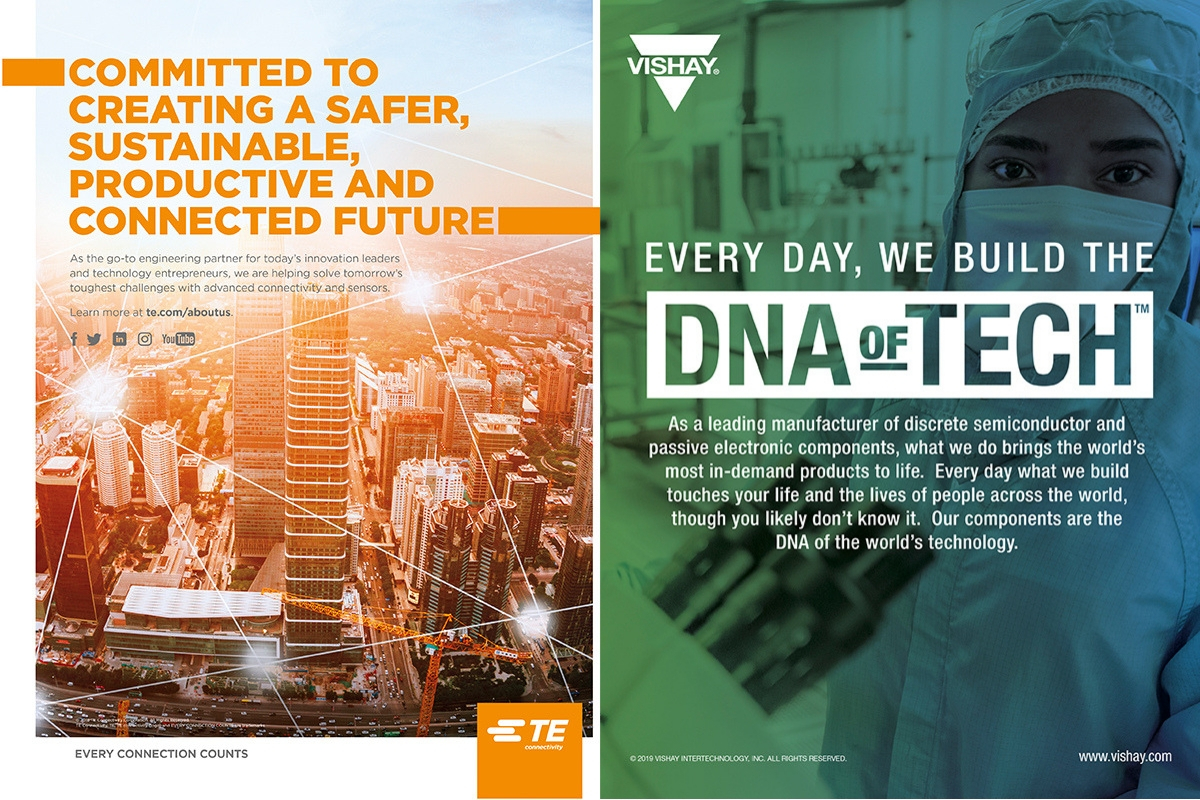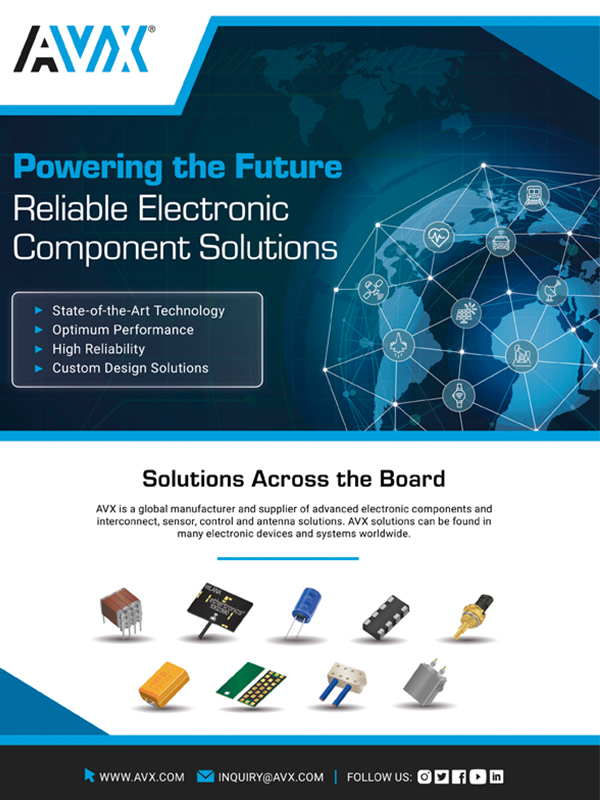It was July 1969 and, along with the rest of the world, Anthony Chan was glued to the television witnessing history in the making. While the young boy appreciated the grainy black and white images showing Neil Armstrong’s giant leap for mankind, he was captivated more by the technology humming behind the scenes to make it happen. He was intrigued and wanted to learn more.
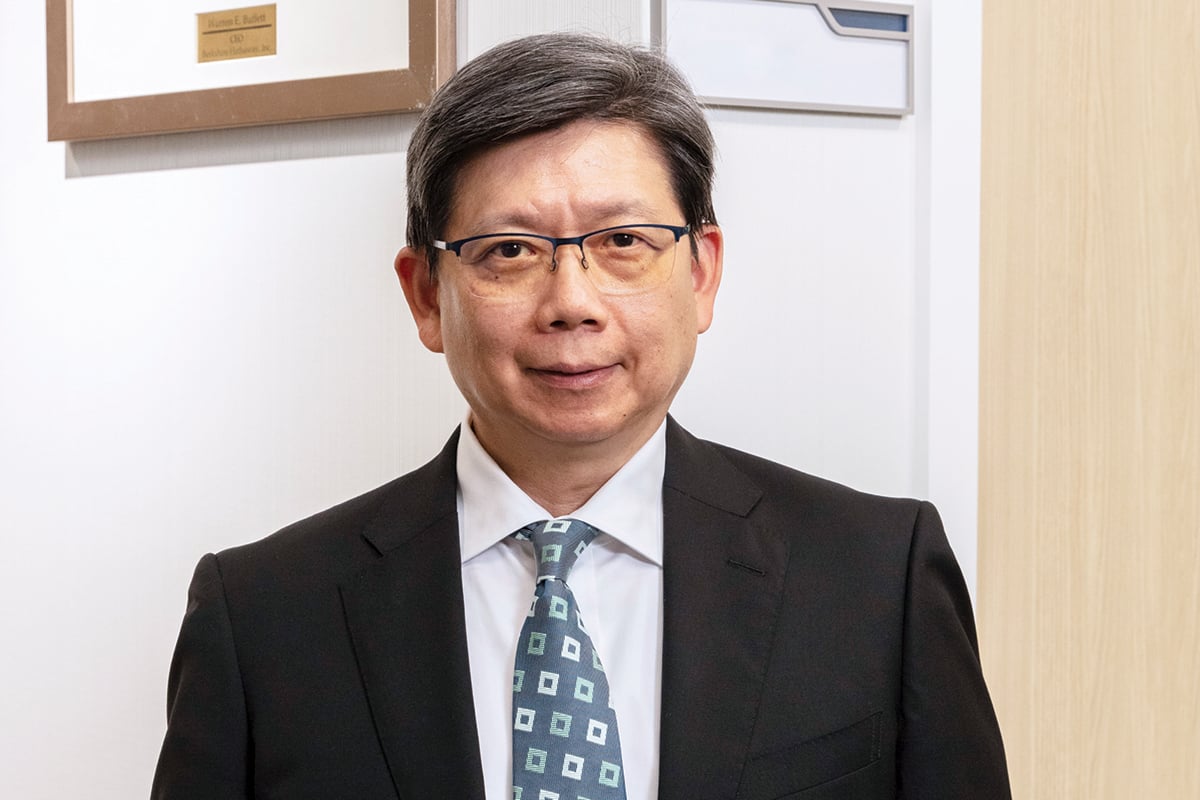
The President of TTI Asia counts that moment in his childhood as the defining moment when a serious passion was ignited. He knew that whichever path his future took him, electronics would have to be involved en route. “I remember it so clearly,” he says. “It was at home after school and while I found it amazing to see Neil Armstrong step onto the moon, all I could think about was the electronics and communications.”
Just a few years later, after that momentous space expedition, TTI was launched in Texas. Today, TTI is one of the world’s most prevalent distributors of electronic components, with its supply chain providing solutions for industrial, transportation, military and aerospace sectors as well as consumer electronic manufacturers.
Around the world, TTI boasts more than 850,000 component part numbers, as well as 5,600 staff employed in more than 100 sales locations and 13 distribution centres throughout North America, Europe and Asia. The company entered the European market in 1992 by opening its first office in Munich and, since then, its reach across the continent has spread to more than 40 countries.
Meanwhile, Anthony, who grew up in Hong Kong, started his career as a field application engineer for Siliconix (now called Vishay), an American manufacturer of components with a global footprint. “They are very well known as a manufacturer for passive and discrete semiconductor components,” Anthony explains.
“I gained a lot of valuable experience working with them and stayed for about 18 years before the opportunity came in 2001 to join TTI in Singapore, just after its launch the year before.”
Anthony was one of just a handful of employees in those early days of TTI Asia Pacific. His knowledge of electronics was a valuable advantage to the business as he worked in managerial roles and helped establish the organisation. “We started with nothing,” Anthony remembers. “There were no sales people in Asia, only a small warehouse shipping to customers.
I think I was probably the fifth employee to join TTI here and I came to set up the sales operations in Singapore and then in Hong Kong, followed by Shenzhen, Shanghai, Taiwan, and other cities in Thailand and India.”
Distribution warehouses totalling more than 20,000 square metres were built in Hong Kong to service mainland China and outlying regions; Shanghai to service mainland China; and Singapore to service other areas in South-East Asia.
Another asset Anthony offered TTI was his law degree from Peking University, gained after completing his master’s in ecommerce. “I did it part-time while living in Beijing,” he explains. “I never practised law, but it helped me a lot in business, particularly when I joined TTI and needed expertise to set up all the different operations, which meant dealing with local government and confirming contractual agreements. My law background helped a lot.”
The road to TTI
TTI was founded in 1971 at Fort Worth in Texas by its CEO, Paul Andrews. A downturn in the aerospace and defence industry saw the young electronics components buyer and 20,000 of his coworkers laid off from the multinational corporation General Dynamics.
In an effort to earn some temporary income until he found permanent employment, using his contacts for sourcing parts, Paul launched Tex-Tronics, a company brokering electronic parts to provide better service and delivery
than the larger established distributors.
Armed with a simple desk and phone set up in the corner of his living room in an apartment measuring just 90 square metres, Paul focused on supplying resistors, the parts he had experienced the most difficulty finding as
a buyer, to military and aerospace customers.
In 1973, with his kitchen filled to capacity with boxes of parts, he bought his first warehouse, and the following year Tex-Tronics was renamed TTI. Another year on, having employed two friends, business reached US$1 million in sales, and in 2000, the company passed US$1 billion in sales. After rejecting numerous offers to sell the business, Andrews agreed in 2006 to sell the majority of ownership to Warren Buffett’s multinational conglomerate, Berkshire Hathaway.
With the bureaucracy sorted, the next priority for Anthony was to build a formidable presence for TTI in Asia–Pacific. While the company had enjoyed an impressive reputation throughout the US and Europe for decades, Asia presented a new and very competitive landscape.
“My role was more like that of an entrepreneur when I think about it. It was building something from nothing,” he recalls. “At first, growth was more organic, with just a couple of acquisitions. I was also kept very busy hiring and getting the right people – that’s so important. And we are still continually hiring. At the moment, I have a team of more than 500, but I would say I hire on average 10 to 15% more people every year.”
Anthony believes TTI’s solid global reputation has helped the company trigger a mutual understanding and trust among both employees and potential recruits seeking a career from warehouse to management roles. “Over recent years, we’ve executed some aggressive acquisitions, which have seen us grow faster than our competitors,” he says. “But people also know we are a good company and that we understand how important it is to invest in talent.”
Anthony does admit, however, that hiring and retaining expertise at all levels is perhaps the company’s greatest challenge. He explains that while China is now offering more experienced and qualified people in a mature and stable electronics market, other countries are yet to catch up.
“India, Indonesia and Vietnam are all areas that are emerging industries, and it’s hard to find qualified people,” he says. “But they will get there. It’s similar to how China was a couple of decades ago. These days, it’s easier in China. You can find good people because there are now systems in place to train them throughout the industry.”
Another challenge to the distribution process throughout Asia is the logistics operations: building efficiency in the warehouses, right through to shipping the product to the customers. “Asia is a huge challenge; it’s very different from the US and Europe. But we’re making progress. We have a stable management team and we invest in our people, we invest in praise and we invest in parts, inventories, warehouses and operations.”
Aside from the acquisitions (of which there have been many over the past two decades), employing and retaining good talent, and improving distribution methods, Anthony attributes the company’s global success to a more basic factor.
“We understand the product better than our competitors,” he says. “At TTI, we always say we are not broad-line issuers like our competitors; we don’t have 300 franchises. There are only about 30 to 40 franchises. We insist we are specialists who know and understand the product better than anyone else. That’s why we’re better and that’s why we enjoy such a good reputation.
“We understand the product better than our competitors.”
“We also have a lot of inventory, and that’s been a philosophy since our CEO, Paul Andrews, started the company almost half a century ago. We always have product on hand to supply to our customers – they can rely on us unconditionally. That’s where we are very different from other companies. We plan well so we can supply without fail.”
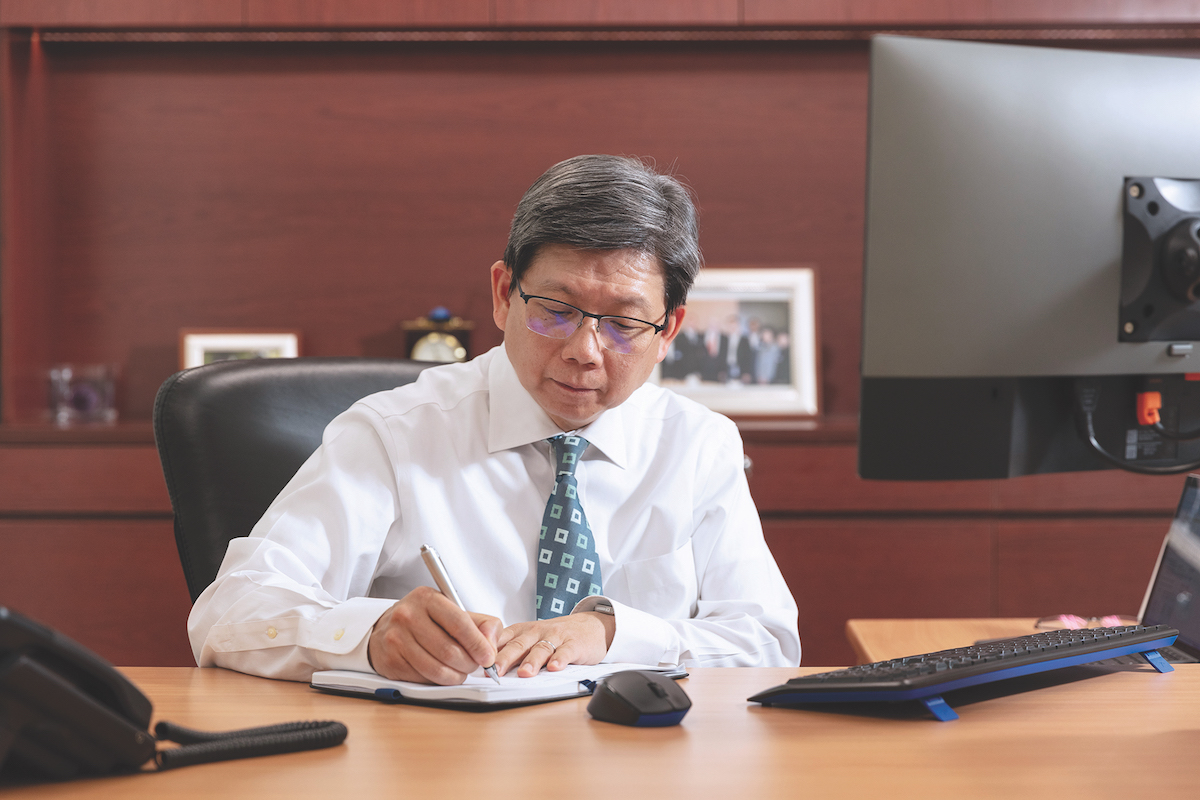
Meanwhile, TTI in Asia is continuing to extend its reach. In addition to TE Sensors and Honeywell Sensors, last year, Anthony announced that TTI was entering into a distribution agreement with Sensata Industrial Solutions, a global leader in highly engineered sensors and controls. It was an exciting prospect for Anthony, who regards sensor products as an important target to focus on in Asia.
“We were very happy to reveal this partnership,” he says. “Sensata is a world-leading supplier in sensing solutions and we are happy to bring their products into our Asian portfolio.” In 2017, TTI also signed a deal with Abracon, a leading global manufacturer of frequency control, signal conditioning, clocking and magnetic parts. Anthony describes that partnership as a ‘natural fit’, with both companies having a focus on interconnect, passive and electromechanical (IP&E), as well as discrete components.
Anthony’s job requires him to travel extensively throughout the year, a necessity he regards as more of a pleasure than an obligation. It’s obvious throughout the conversation that although this leader may be an electronics expert, he’s just as comfortable dealing with people, and travelling to meet his teams is one of his priorities.
In fact, he admits there’s nothing he enjoys more than getting out in the field, and he makes sure that his visits to the offices and warehouses extend to time outside of office hours.
“I’m travelling a lot because I try to get to all the branches in my own region every year, even the small ones,” he explains. “But that’s good because I like to spend time with my people – I want them to see my face and know who I am. That’s important to me.”
Anthony visits the Fort Worth head office in Texas a couple of times a year as well, describing the city as progressive, friendly… and pretty well perfect when it comes to the weather.
“It’s a very good city and is enjoying a lot of growth and development. Plus, being right in the middle of America, it’s a great location – not too hot, not too cold,” he says. “The people are very friendly, too. I am fortunate with my work to be able to visit a variety of countries. I enjoy seeing different people as well as their cultures, whether it be for work or for a holiday.”
Entering South Korea
In 2017, TTI acquired South Korean distributor Changnam, a specialty distributor of semiconductors principally focused on automotive, consumer electronics, industrial and wireless end markets. Its business is primarily conducted in South Korea, with satellite offices in China.
The acquisition was the second in TTI’s construction of a global speciality semiconductor distribution group, called TTI Semiconductor Group, following the acquisition of Symmetry Electronics in the US earlier in the year. As with Symmetry, Changnam operates as a standalone business separate from TTI’s core IP&E component distribution business.
TTI’s extensive product line is distributed from a wide range of manufacturers, with Vishay, Molex, TE Connectivity, AVX, Sensata and Panasonic among them. The product line itself includes capacitors, resistors, connectors, potentiometers, trimmers, magnetic and circuit protection components, wire and cable, identification products, application tools and electromechanical devices.
Last year, in a commitment to future growth, TTI opened a brand-new distribution centre in Fort Worth – the single largest capital investment the company has made in its 50-year history. Located approximately two kilometres away from headquarters, the new distribution centre sits on about 180,000 square metres of land, yet offers almost 250,000 square metres of space due to several platforms and mezzanine levels.
Its location next to vacant land also owned by TTI, means an additional 43,000 square metres is available to be used for future growth if required.
The centre expands the organisation’s global warehouse space from some 365,000 square metres to more than 600,000 square metres. While the facility will mainly be used for supporting the US operations as well as handling the purchasing and stocking for seven TTI warehouses in Mexico, 10% of its business will replenish product lines in international locations, including Asia.
Despite his love for exploring technology, Anthony insists it’s his managerial roles throughout his career that have helped developed his talent with people. Having proven himself as a leader, this skill set may never have emerged had he stayed in R&D. But, while he loves the way his career has evolved, Anthony admits he misses the nitty-gritty of working with technology.
“I have so much respect for R&D people. They are so passionate and committed – they have to be.”
“I haven’t worked in the R&D field for 30 years,” he reflects. “And, yes, it’s very different from the managing and marketing I’m doing now. But I remember it well and I do miss it. I have so much respect for R&D people. They are so passionate and committed – they have to be. They’re also generous with their time.”
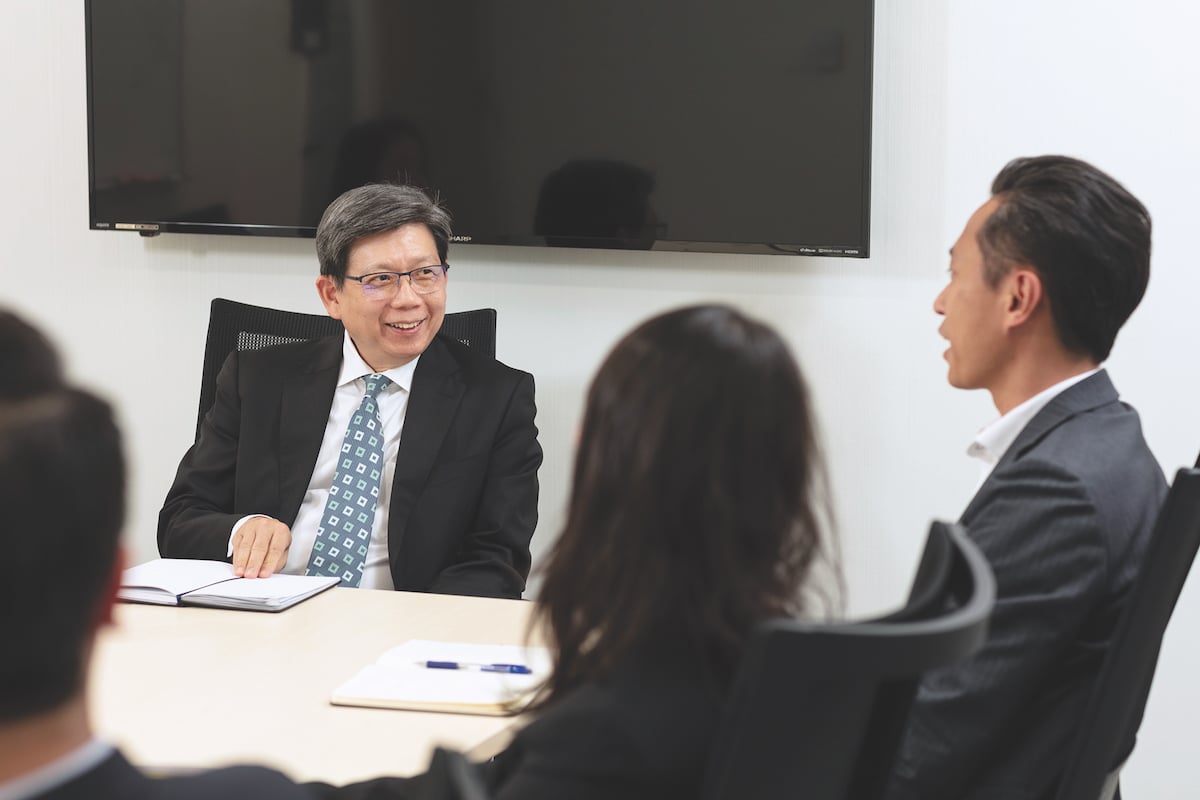
Surprisingly, or perhaps not, Anthony admits his favourite electronic gadget is simply his smartphone. He believes it’s the one device that has completely altered everyone’s lifestyle, whether technologically minded or not.
“Its impact on us is both good and bad,” he says. “Obviously, it’s how you make use of technology that determines that. It can help us in life but, if we misuse it, then it can create a lot of problems. The smartphone assists us with being connected and communication, but then young people lack communication skills because they spend too much time on it. Everything has a good and a bad side; nothing is perfect.”
Anthony laughs when asked what motivates him. After all, he’s lucky enough to enjoy a job that is more of a natural passion than a chore. Although, he concedes the love for his job can sometimes mean forgetting to ‘leave work at the office’ and his wife often has to remind him to “just slow down”.
It’s a challenge given the time difference between Singapore and the Texas office, being at opposite ends of the spectrum, meaning much of Anthony’s reporting has to be done in the evenings. “Sometimes it’s really busy – too busy,” he says. “But coming from Hong Kong, I’m used to it. The culture there taught me that working more than 16 hours a day for a multinational company is normal.”
The long hours and Anthony’s persistence have contributed to TTI’s success in the Asia–Pacific region, it seems. Being a world-leading distributor doesn’t happen overnight, either. Since TTI’s launch in the 1970s, the company has grown to all corners of the globe.
Since its origins in North America, its expansion has spanned 40 countries in Europe since the 1990s, to entering a diverse market in Asia in the early 2000s.
Anthony has been there since the beginning, as one of just a few employees in the early days of TTI Asia Pacific. Now, TTI covers 27 geographical locations in Asia with more than 28 per cent growth last year, with no intention of slowing as it continues to extend its reach.
Proudly supported by:
